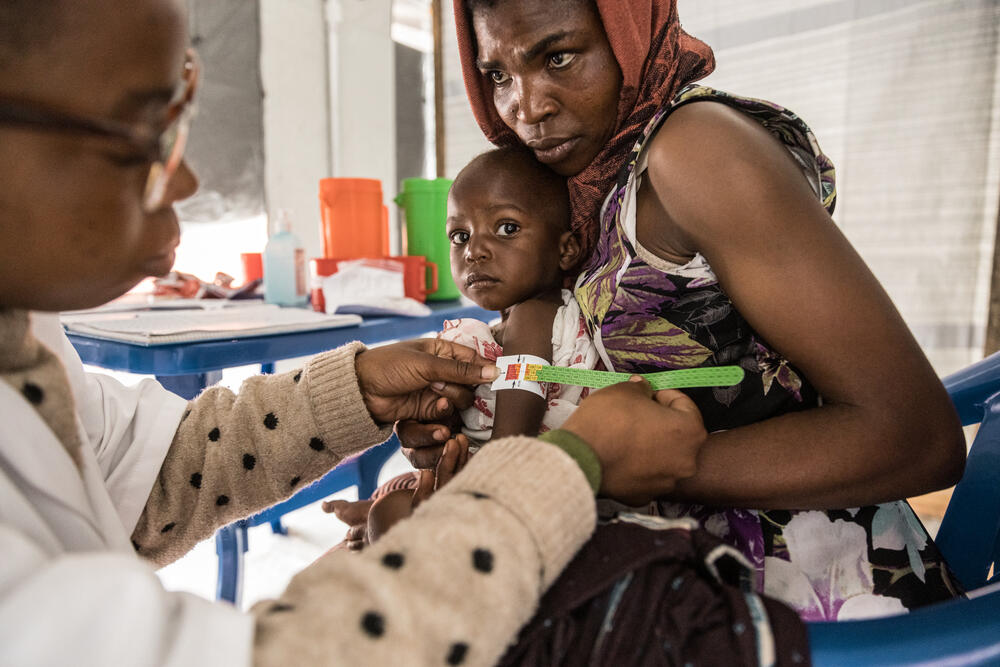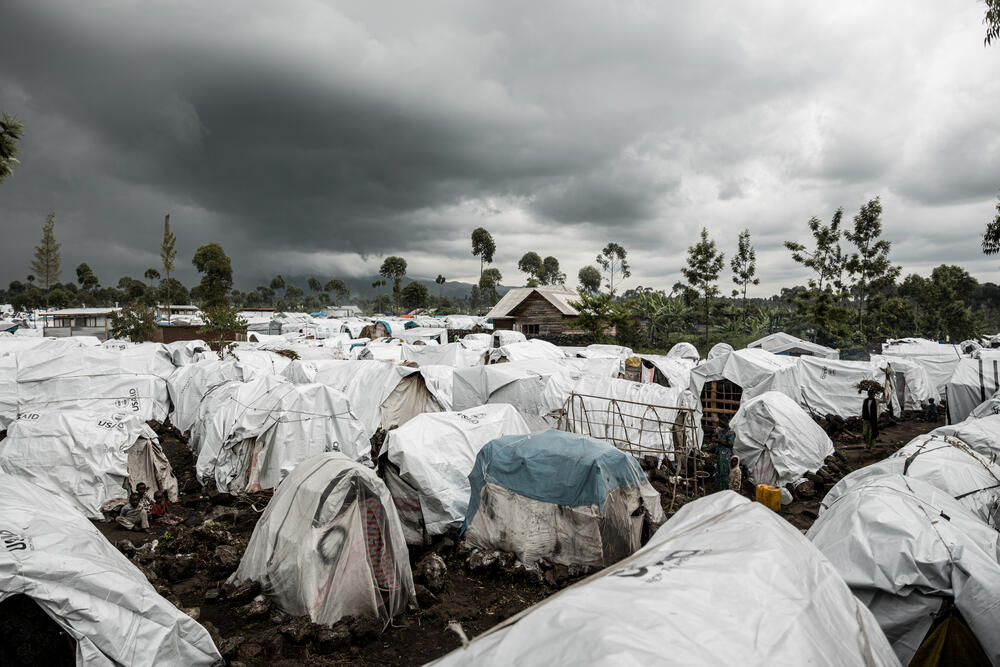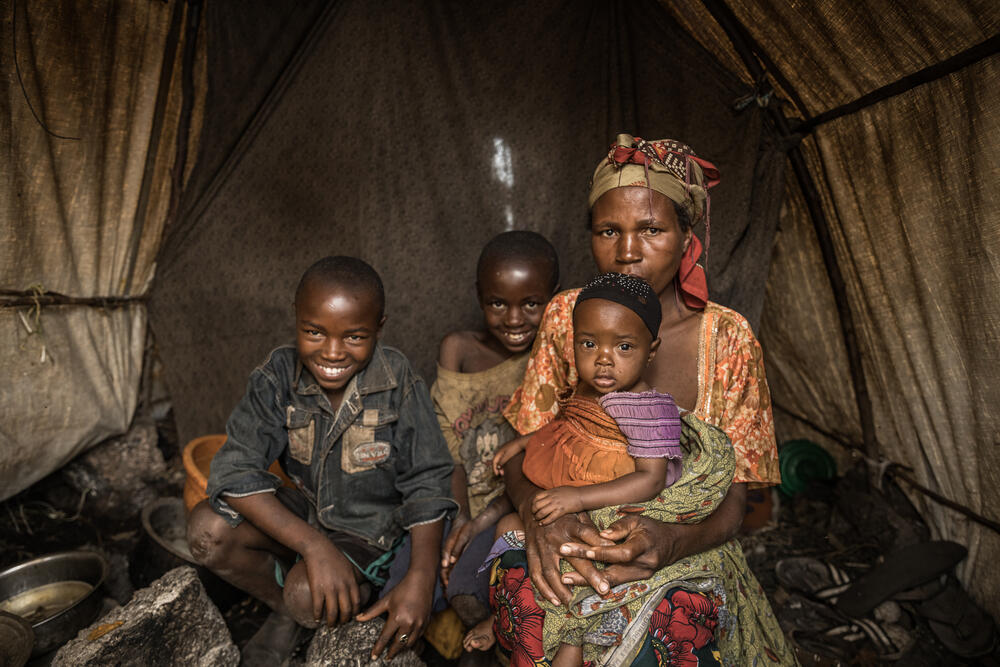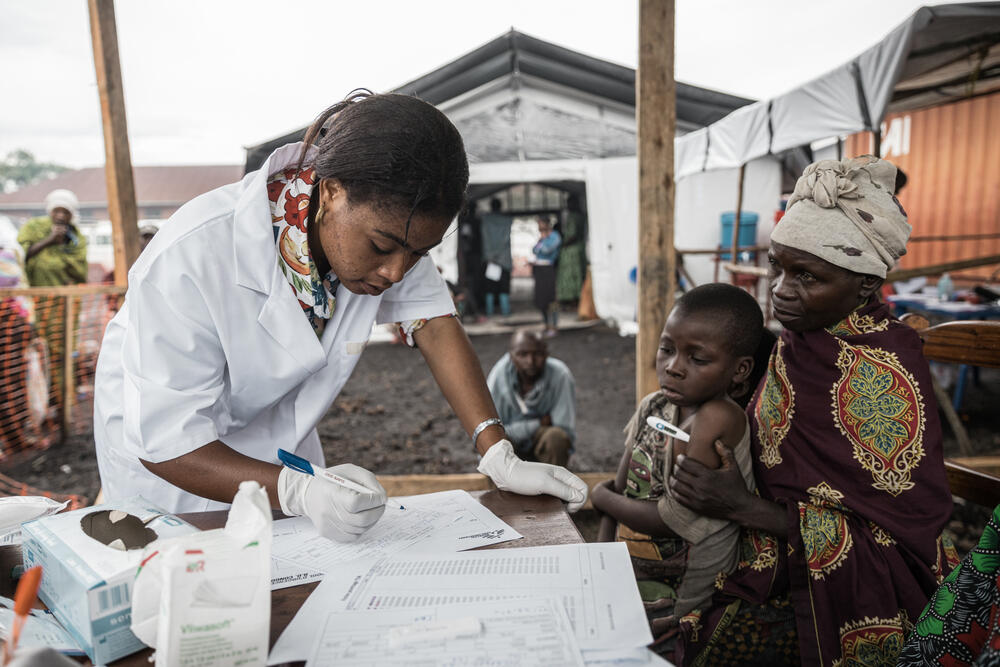DRC: MSF calls for rapid humanitarian response to growing North Kivu crisis
Around 600,000 people are living in desperate conditions in displacement camps around the city of Goma, in the east of the Democratic Republic of Congo (DRC).
This is the capital of the country's North Kivu Province – a region that has been a flashpoint for decades of insecurity and was the scene of a 2018-20 Ebola epidemic that became the second largest in history.
With people here now facing limited access to food and frequent exposure to violence, Médecins Sans Frontières / Doctors Without Borders (MSF) teams are witnessing alarming rates of malnutrition and mortality in some of the camps.
Several UN agencies have recently announced they would be stepping up their efforts to meet the needs of people in the east of the DRC – raising the severity of the crisis to the UN's highest tier on 16 June.
This is a positive sign, however, these intentions urgently need to be translated into a significant, rapid and tangible increase in the aid and protection provided to people in the camps.
MSF in Goma
MSF teams are currently working in 12 camps for displaced people around the city of Goma.
We provide free and essential medical care, supply safe drinking water and construct latrines and showers to help prevent the spread of infectious diseases.
In several camps, we have also responded to outbreaks of cholera and measles, and have organised mass vaccination campaigns.
Elsewhere, MSF provides expert medical aid across seven other areas of North Kivu.
For several months now, there has been a slow and inadequate level of aid provided to people in the Goma area who have fled their homes following violence related to the resurgence of the M23 armed group.
And, despite a certain increase in recent weeks, the approximate 600,000 displaced people living in camps continue to lack basics such as food and shelter.
Work carried out by MSF in the camps of Rusayo, Shabindu and Don Bosco revealed an alarming mortality rate between January and April among children under five.
In Rusayo, where the population is estimated at between 85,000 and 100,000, more than three children died on average every day from various causes.
In Elohim camp, which had a population of around 4,000 in May, MSF found that malnutrition rates were well above the emergency threshold. That month, one in four children in the camp were treated by MSF for malnutrition.
Here, many displaced people report having received no food aid since their arrival, in some cases as long ago as January. At other camps, such as Rusayo and Shabindu, some food has been distributed, but not to everyone.
Now, this alarming situation is compounded by several risk factors such as cases of measles and cholera appearing in the camp.
£23 could pay for antibiotic treatment for 3 severely malnourished children
The generosity of people like you means expert MSF medical teams can deliver essential medical care to malnourished people across the world.
Sexual violence
The shortage of food is also impacting the health of adults, especially women, who often have to leave the camps during the day to look for food or firewood and are exposed to violence and particularly sexual violence.
In early May, MSF raised the alarm over the high number of women treated by its teams for sexual violence. in two weeks alone, 674 women from six camps reported experiencing sexual violence. And, currently, still an average of 40 women a day report being a victim of sexual violence at these same sites.
Although some humanitarian organisations appear to be aware of the gravity of the situation, right now aid and protection measures are benefiting only a small proportion of survivors. The safety of civilians inside and outside the camps must be urgently ensured.
Overall, many displaced people arrived in the camps after experiencing serious episodes of violence.
MSF’s work in Rusayo, Shabindu and Don Bosco camps showed that violence was the main cause of death among men (up to 40 percent in some camps), with two deaths per 10,000 people per day between January and April. This is twice the emergency threshold.
An incomprehensible situation
"This catastrophic situation is even more incomprehensible given its proximity to the major city of Goma, where aid could easily be distributed,” says doctor Guyguy Manangama, head of emergency programmes for MSF.
“Relief activities are being developed here and there, but without any coordination or overview of the situation in the camps. The scale of mobilization of the aid system is far from sufficient and far too slow.
“There is also a blatant lack of visibility and information on the aid provided and on the number of people in need of support – information which is nonetheless necessary for the proper coordination of aid organisations."
“The scale and duration of displacement is historic, even for Eastern DRC”, says Guyguy.
“This gives us an idea of the response that is needed. Yet hundreds of thousands of people continue to be largely neglected by the aid community, despite the growing awareness of the humanitarian system."
During the early months of this crisis back in 2022, the initial humanitarian response was too slow to respond – something MSF has acknowledged about its own operations. However, since then, MSF has continued to consistently deliver life-saving interventions, most recently to protect children under five suffering from acute malnutrition.
Across the North Kivu region, in areas such as Lubero, Masisi and Rutshuru, MSF is sometimes the only humanitarian organisation on the ground, delivering medical aid to vulnerable people wherever the need is greatest.
MSF in the Democratic Republic of Congo
The second-largest country in Africa by area, the Democratic Republic of Congo (DRC) is plagued by conflict. It has endured decades of multiple overlapping crises and severe limitations in medical capacity.
In DRC Médecins Sans Frontières/Doctors Without Borders (MSF) continues to run some of its largest programmes, working in 20 of the country’s 26 provinces.
We provide services ranging from basic healthcare and nutrition to treatment for victims of sexual violence and people living with HIV/AIDS.



